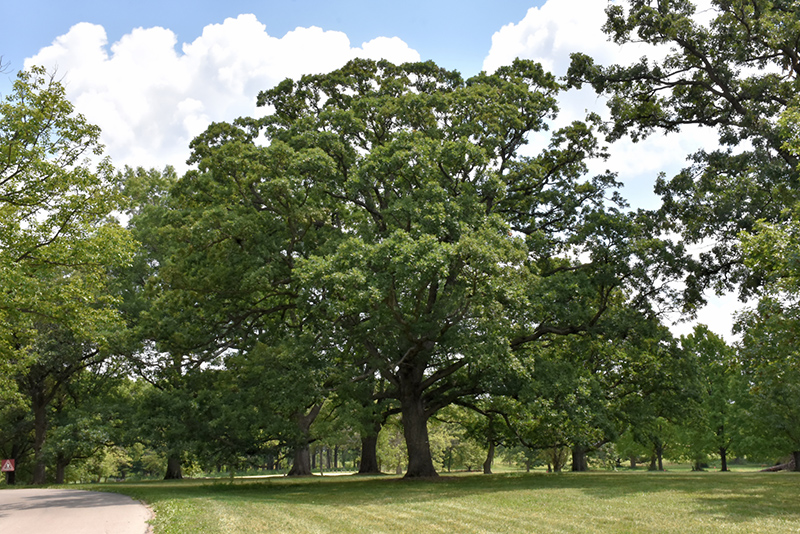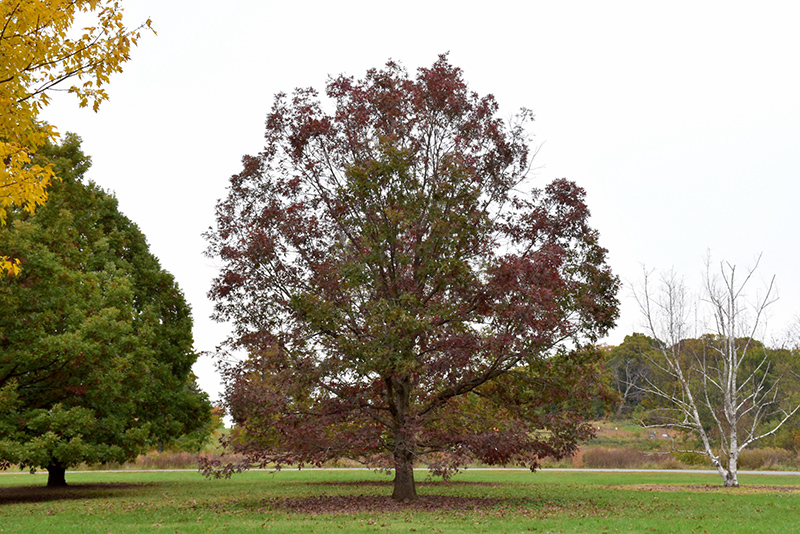>> Home
Height: 90 feet
Spread: 70 feet
Sunlight:
![]()
Hardiness Zone: 4a
Description:
A massive and stately shade tree with an artistic, wide-spreading habit of growth and good fall color, only for the largest of landscapes; extremely tough but rather slow growing, plant for the enjoyment of future generations
Ornamental Features
White Oak has dark green deciduous foliage which emerges rose in spring on a tree with a round habit of growth. The glossy lobed leaves turn an outstanding purple in the fall. However, the fruit can be messy in the landscape and may require occasional clean-up. The furrowed black bark adds an interesting dimension to the landscape.
Landscape Attributes
White Oak is a dense deciduous tree with a more or less rounded form. Its average texture blends into the landscape, but can be balanced by one or two finer or coarser trees or shrubs for an effective composition.
This tree will require occasional maintenance and upkeep, and is best pruned in late winter once the threat of extreme cold has passed. It is a good choice for attracting squirrels to your yard. Gardeners should be aware of the following characteristic(s) that may warrant special consideration;
- Messy
White Oak is recommended for the following landscape applications;
- Shade
Planting & Growing
White Oak will grow to be about 90 feet tall at maturity, with a spread of 70 feet. It has a high canopy of foliage that sits well above the ground, and should not be planted underneath power lines. As it matures, the lower branches of this tree can be strategically removed to create a high enough canopy to support unobstructed human traffic underneath. It grows at a slow rate, and under ideal conditions can be expected to live to a ripe old age of 300 years or more; think of this as a heritage tree for future generations!
This tree should only be grown in full sunlight. It is very adaptable to both dry and moist locations, and should do just fine under average home landscape conditions. It is not particular as to soil type, but has a definite preference for acidic soils. It is highly tolerant of urban pollution and will even thrive in inner city environments. This species is native to parts of North America.


